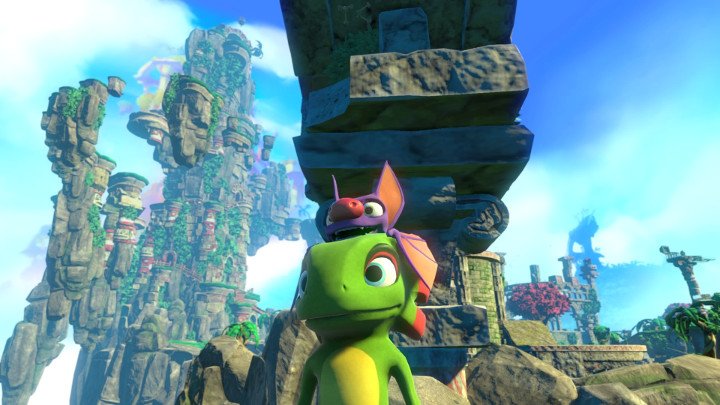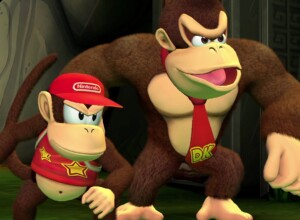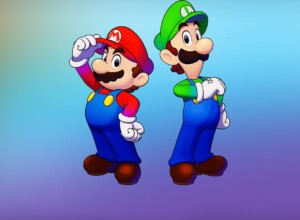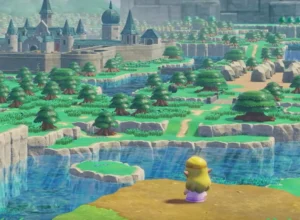I really rather like Die Hard. Yes, this is a Yooka-Laylee review, I promise – stick with me here, folks.
The original Die Hard is one of my favourite movies of all time. It’s also the best Christmas movie ever, and I will fight anyone who disagrees. Its sequel, Die Hard 2 – subtitled ‘Die Harder’, which should have been a dire warning of what was to come – was inferior to the original, but it was still a bloody enjoyable experience. Die Hard With a Vengeance was also a stomping action movie.
Then, they should have stopped making Die Hards. Sometimes I close my eyes and pretend there aren’t any more Die Hard movies. I like to imagine that they did indeed stop at three, and the fourth and fifth movies can’t hurt me or the legacy of John McClane any more. See also: Indiana Jones and the Kingdom of the Crystal Skull, all the Star Wars prequels, Terminator 3, Terminator Salvation, Terminator Genisys, and Prometheus.
Sometimes, something exists as a perfect slice in time, and it really doesn’t need rehashing. You see where I’m going with this one now, right?
The ghost of Banjo-Kazooie
Yooka-Laylee is, for all intents and purposes, a successor to Banjo-Kazooie. I’m reluctant to call it a spiritual successor – as many others have – because, other than the aesthetic stuff being different, it’s basically the same game. More on that later.
Banjo-Kazooie and its sequel, Banjo-Tooie, are 3D character platformers that were developed by industry veterans Rare and released for the N64 around the turn of the century. This was a time when 3D character platform games were wildly popular and Banjo-Kazooie really was up there with the best of them.
Times change, however, and Rare were bought by Microsoft a few years later. Following a couple of poorly-received attempts at 3D character platforming revivals – including a Banjo-Kazooie game that bizarrely included more car-building than platforming – their focus shifted to other areas. Specifically, Rare went all-in on Microsoft’s Kinect platform, which was the next big thing at the time.
But a small group of veterans, dedicated to the art of the 3D platform game, left Rare and founded Playtonic Games. They had a vision that the world wanted – nay, needed – a successor to Banjo-Kazooie, and they took their idea to Kickstarter. It was wildly successful.
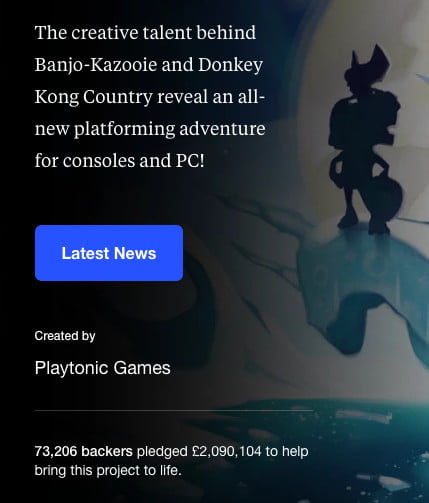
The strange thing is, I’m not sure the world did want, or need, Yooka-Laylee. But the peculiar thing about Kickstarter is that when someone floats the idea in front of you, and the cost is relatively low, it suddenly seems like a good idea, even if it was the furthest thing from your mind five seconds earlier.
I’m sure if Kickstarter had existed in 2005 and Bruce Willis had pitched Die Hard 4.0 to me – including Justin Long in the buddy sidekick role, and the bit where he takes out the helicopter with the car – I would’ve chipped in a few quid, but with hindsight we know that Die Hard should have stopped with a vengeance.
So how does Yooka-Laylee pick up the Banjo-Kazooie torch? Rather literally, as it happens.
If you’ve seen one, you’ve seen ’em all
Yooka-Laylee begins with Yooka (the cute, bipedal lizard) and Laylee (the obnoxious bat) hanging out in their pleasant, 3D platform home.
Then an evil bee moves in next door and starts sucking up all the books in the world (because reasons, obviously) including a magical book that is torn into hundreds of pages, known as ‘pagies’, that are scattered throughout the worlds. Yooka and Laylee must then collect quills to learn a bunch of 3D platforming moves from a comedy snake salesperson, infiltrate the bee’s hub-world lair to collect parts of said magical book, use the ‘pagies’ to open up access to new worlds found within grand tomes, and ultimately stop the evil bee.
Now if you do a find and replace on that paragraph, with the following parameters:
- Yooka = Banjo
- Laylee = Kazooie
- Lizard = Bear
- Bat = Bird
- Bee = Witch
- Quills = Musical notes
- Pages = Jigsaw pieces
- ‘Pagies’ = ‘Jiggies’
- Snake = Mole
- Grand tomes = Jigsaw puzzles
Then you’ve basically got Banjo-Kazooie. There you go. I’ve saved you the bother of having to play it. No? That’s not enough? You’re really going to make me do this, aren’t you?
OK then, here it is: Yooka-Laylee is fine.
Now, I should point out that ‘fine’ is a terrible adjective, and if a writer turned in a review that described something as ‘fine’ then I wouldn’t be pleased. Writers shouldn’t ever resort to using the word ‘fine’, because they should possess the eloquence and raw mastery of language to never resort to such lesser adjectives, but on rare occasions the use of a word so banal as ‘fine’ is in and of itself an incredibly expressive piece of language. Particularly when you’re British.
But you’re going to want more than a sardonic “this game is fine” aren’t you?
The Yooka-Laylee review proper
First up, I actually think Yooka-Laylee is very pretty to look at. Modern standards of beauty have changed in games of late, and a 90s-inspired 3D platform game was never going to compete with the likes of Uncharted 4 visually, but it actually looks fine. And in that instance, I actually mean ‘fine’ for its other, non-British meaning: lustrous and splendid.
There are a few foibles to the visuals. Underwater scenes can be murky and confusing, as they often are with 3D platformers, and the less brightly lit environments – certain areas of the hub world, for example, or the whole of Moodymaze Marsh, which is largely a gloomy mess – aren’t nearly a patch on the technicolour vibrancy of the likes of Tribalstack Tropics.
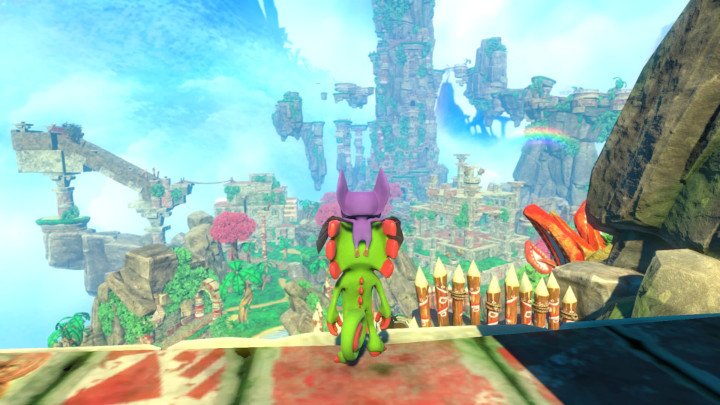
Tribalstack Tropics is a joyous romp through the history of 3D platformers. From the endless azure skies and verdant fields of green, with plush palms and iridescent rivers, it’s a little slice of video game design 101. It’s unashamedly Emerald Hill Zone or Yoshi’s Island, and that absolutely fine with me.
The animations are adorable, too. While Yooka might be a Banjo surrogate, he’s far closer to Mario’s dinosaur steed, Yoshi, than his Rare forebear. From the way he catches butterflies (for health) with his long, sticky tongue, or how he strains for a higher ledge with a Yoshi-esque ‘flutter jump’, to the way he gulps down anything in sight and turns them into tools or weapons – projectiles, flames, bombs – everything is pure, vintage Yoshi.
Leave your heroes alone and, as with the best platformers, you’ll be treated to an idle animation. Yooka-Laylee‘s idle animation speaks volumes: Yooka is all heart and totally adorable, but Laylee – the tomato-nosed bat who rides on his shoulders – is an absolute dick, teasing Yooka for no reason.
While Yooka is a metaphor for everything that’s right about Yooka-Laylee, Laylee sums up plenty of what’s wrong. There’s a reason that The Simpsons quickly changed from a vehicle for Bart (Laylee, in this analogy) and centred on the big, lovable oaf, Homer (Yooka): there’s only so much teenage sass and relentless faux-anarchism one can take before it starts to grate.
And it starts to grate really, really quickly.

Yes, that’s the Rare style, and it’s part of Playtonic’s vision to bring back a style of yesteryear, but the schtick gets old fast. Literally a few seconds after starting, as it happens.
From an initially positive first impression, of adorable ukulele music and a cute, colourful menu screen, we’re thrust into a cut scene. In it we observe the game’s antagonists, a Dr Robotnik-esque bumble bee and a duck mad scientist who is a disembodied head in a gum-ball machine for some reason – did I mention the shtick was painful? – unveiling their dastardly plan to vacuum all the world’s books.
You remember the noises that characters used to make while talking in Banjo-Kazooie, right? That sort of, grown ups talking on Charlie Brown meets that poorly-drawn multiverse from Family Guy garbage noise, that seemed acceptable because it was the N64 and full voice acting would’ve been an unreasonable ask? Well, that’s back in Yooka-Laylee, and in the cut scenes – of which there are many more than there used to be in Banjo – you can’t skip it.
And I hate it. So. Much.
You can’t even mute it. I went into the menu, vainly hoping for an option to change the gibberish into actual, spoken voice acting, or – worst case scenario – an option to turn it off altogether, but it wasn’t there. I could either turn down (or off) sound effects altogether, which would have removed so many charming yelps and boinks from Yooka and the environment, or leave them on and tolerate them.
And there’s so much of it. What could be simple, quick quest-giving chats quickly turn into twenty-line back and forth conversations. You’ll probably find yourself hammering the button to skip through the interminable conversation noise, but you’re not missing out on much. Other than a few puns – including a snake named Trowzer, snigger – and occasional self-referential gags that genuinely made me laugh, it’s pretty painful stuff.
I’m conscious that Yooka-Laylee is essentially a game for children – setting aside the fact it was bought and paid for by people in their twenties for a moment – but kids playing games nowadays are invested in more sophisticated experiences. In a world of limitless imagination (Minecraft), or big-budget immediacy (the Lego tie-ins), or toys that literally come to life (Lego Dimensions, Skylanders), a retro platformer with crude sound effects and 9am cartoon jokes shoe-horned in there feels a bit out of place.
Or perhaps, more accurately, out of time.
Let’s do the time warp again
Thankfully in other areas, Yooka-Laylee handles its retrospection far better.
The music, composed by Rare stalwarts Grant Kirkhope (Goldeneye 007, Banjo-Kazooie), David Wise (Battletoads, Donkey Kong Country) and Steve Burke (Kameo, Viva Piñata), is damn-near perfect. It’s a masterful combination of chirpy and twee, perfectly fitting the game’s saccharinely sweet visuals and retro ambitions. Like the best video game soundtracks, it’s eminently hummable and never becomes tiring.
The Yooka-Laylee soundtrack is available to buy, by the way, and I really can’t recommend it enough. In a game that has its flaws, it’s one very consistent high-point.
And how does Yooka-Laylee play? Well, very much like you’d expect: just like Banjo-Kazooie.
The classic progression of opening a world, then collecting stuff to buy new moves, to allow you to collect more stuff, to allow you to open new worlds, works exactly as you’d expect. Yooka-Laylee is a mechanically solid 3D platformer, and Yooka himself is chunky little ball of lizard muscle and sinew to control. Mastering new moves is fun and progression based on these new moves is challenging, though there are a few irritating sections and elements that don’t quite work.
There are also a lot of minigames that are predominantly a result of stretch goals in the Kickstarter campaign, but other than Rextro himself – the retro T-Rex (geddit?) who introduces them to you, who is one of my favourite (read: the least annoying) characters – the game isn’t particularly enhanced by their inclusion. Lots of them felt like they could have been knocked up in an afternoon, possibly by the work experience kid who usually makes the tea, and they haven’t compelled me to play more than once or twice.
While the game is crammed with stretch goal extras, the worlds themselves feel a little limited compared to the sorts of expansive level design we’re now used to – at least at first glance. But once you’ve collected enough ‘pagies’ you’ll be able to expand the worlds you’ve already discovered, in addition to opening up new ones to push forward. When you add the extra real estate onto the levels, which adds a significant amount of verticality and exploration, then they really start to feel like classic Rare levels.
As this is a 3D platformer, though, there are a few specific niggles.
For one thing, the camera can be a squirmy, flighty animal. But when you consider that nobody has really ever gotten a 3D platform camera right in over twenty years, I can allow a little leeway for it at least being no more terrible than anybody else’s. Playtonic have released a day one patch that should fix some camera issues, but I didn’t find it much different on a very brief tinker since the patch arrived (other than addressing a few specific sections where the camera broke altogether, that the PR folk did forewarn me about beforehand).
This patch is also designed to address some performance issues, many of which have been well-discussed by earlier reviews. To be fair, I didn’t personally see anything too horrendous playing on PS4, though your mileage may vary.
There is a little slowdown when things get rather busy on-screen, some evidence of poor optimisation that the patch should address, and a few bugs that publisher Team17 warned me about beforehand (and have assure me are addressed in the day one patch).
And speaking of performance issues, there is also this hilarious frame rate drop that kept happening on the loading screen, basically because there are too many animated collectibles on screen at once:
Nothing dreadful, but still, indicative of some optimisation issues in there that need working out.
With a dearth of co-op games of late, Mrs B and I were also really looking forward to the two-player campaign experience – similar to the collecting/shooting mechanic in Super Mario Galaxy – but without the Wiimote’s pointing ability, it just doesn’t work. At all. Between player one wrestling with the camera and player two having to track across the screen using analogue sticks, it was practically unplayable.
It’s one minor final point, in the grand scheme of things, but one that’s symptomatic of another nice idea with an imperfect implementation.
